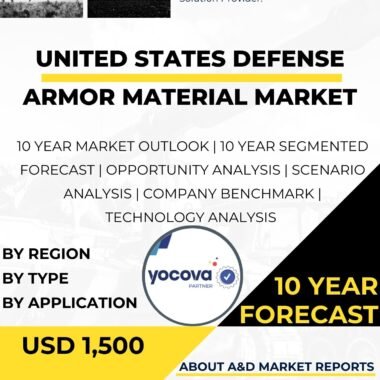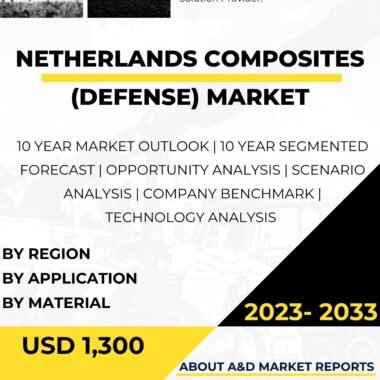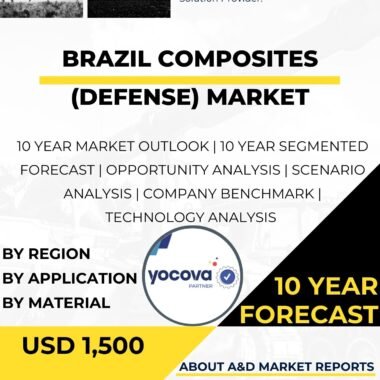Description
The Saudi Arabia Defense Armor Material Market is a vital sector within the country’s defense industry, focused on the procurement, development, and maintenance of advanced armor materials and systems. These materials are crucial for enhancing the protection and survivability of military vehicles, personnel, and critical assets against various threats, including ballistic, blast, and mine impacts.
Saudi Arabia, as a prominent player in the Middle East region, places significant emphasis on bolstering its defense capabilities to ensure national security and contribute to regional stability. With a modern and well-equipped military, the Kingdom seeks to address emerging security challenges and safeguard its territorial integrity. The defense armor material market is a key enabler in achieving these objectives.
The Saudi Arabia Defense Armor Material Market is primarily dominated by international defense companies that specialize in the development and production of advanced armor materials and systems. These companies offer a wide range of products, including reactive armor, composite armor, ceramics, and high-performance ballistic materials. Notable global players in this sector include Rheinmetall, BAE Systems, and General Dynamics, among others.
One of the primary drivers of the defense armor material market in Saudi Arabia is the Kingdom’s continuous investment in modernizing its armored vehicle fleet. The Saudi Arabian Army operates various armored platforms, including tanks, armored personnel carriers (APCs), and infantry fighting vehicles (IFVs). Upgrading these vehicles with state-of-the-art armor materials enhances their survivability and maneuverability on the battlefield, increasing the effectiveness of ground operations.
Moreover, the geopolitical landscape in the region has prompted Saudi Arabia to prioritize the protection of its military and strategic assets. As a result, the Saudi government is actively investing in developing and procuring advanced armor solutions to safeguard critical infrastructure, military bases, and key installations from potential threats.
The defense armor material market in Saudi Arabia is also driven by the need to counter asymmetric threats. The Kingdom faces challenges from non-state actors and insurgent groups, who often employ unconventional tactics, such as improvised explosive devices (IEDs) and landmines. As a response, Saudi Arabia seeks to adopt innovative armor technologies that can withstand such threats and minimize casualties among its military personnel.
The Saudi government’s Vision 2030 economic diversification plan also influences the Defense Armor Material Market. As part of this vision, Saudi Arabia aims to develop a robust domestic defense industry that can contribute significantly to the national economy. To achieve this, the Kingdom encourages joint ventures and technology transfer initiatives with international defense companies to enhance indigenous research, development, and manufacturing capabilities for armor materials.
Localization of defense manufacturing is a key objective for the Saudi government to reduce reliance on imports and increase self-sufficiency in producing critical defense equipment. Therefore, partnerships with global defense companies allow for knowledge sharing and technology transfer, empowering local entities to develop and manufacture advanced armor materials.
However, the Saudi Arabia Defense Armor Material Market faces challenges. The complexity and sophistication of modern armor materials demand continuous research and development efforts to stay ahead of evolving threats. Developing materials that are lightweight yet highly effective against a wide range of threats requires substantial investment and expertise.
Additionally, international defense companies often have a competitive advantage due to their long-established research facilities and expertise in armor material development. Encouraging technology transfer and nurturing local talent and research capabilities become essential to promote indigenous defense manufacturing in Saudi Arabia.
In conclusion, the Saudi Arabia Defense Armor Material Market is a critical component of the country’s defense industry, supporting the Kingdom’s defense modernization efforts and addressing emerging security challenges. The demand for advanced armor materials and systems is driven by the need to protect military vehicles, personnel, and strategic assets from diverse threats. International defense companies play a significant role in this market, but the Saudi government’s efforts to localize defense manufacturing and promote technology transfer are expected to lead to the growth of domestic capabilities. As the Kingdom continues to invest in its defense sector and diversify its economy, the defense armor material market will remain an essential area of focus for enhancing national security and contributing to regional stability.




